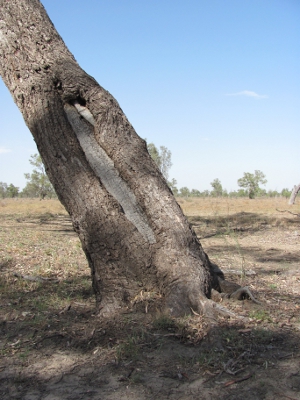|
|
First Nations' valuesFirst Nations' values – Traditional values of wetlands
 Values of wetlands for Traditional OwnersWetland ecosystems are of material and cultural importance to Indigenous people; many have profound cultural significance and values. Historically, significant resources for traditional ownership clustered around areas of greatest biodiversity, such as along ecotones (transition areas between two or more ecological communities) which include wetlands.
What’s important for Traditional Owners
Valuing Traditional Owner contributionSharing knowledge with Traditional Owners can provide evidence on which to base management.
Shared management can be a partnership between governments and Aboriginal and Torres Strait Islander communities.
Aboriginal involvement in wetlands managementAboriginal knowledge of wetlands management provides an important basis for natural resource management which has evolved over several hundred generations of people living on and managing custodial responsibility for country. See A roadmap for engagement with First Nations People, a guide to engaging with First Nations peoples' to integrate Traditional Knowledge, stories and connection to country with managing rivers. Additional information
If you are aware of additional information please contact us on the feedback link below. Last updated: 30 August 2016 This page should be cited as: Department of Environment, Science and Innovation, Queensland (2016) First Nations' values – Traditional values of wetlands, WetlandInfo website, accessed 8 May 2025. Available at: https://wetlandinfo.des.qld.gov.au/wetlands/management/wetland-values/first-nations/traditional-owners.html |

 — Department of the Environment, Tourism, Science and Innovation
— Department of the Environment, Tourism, Science and Innovation


